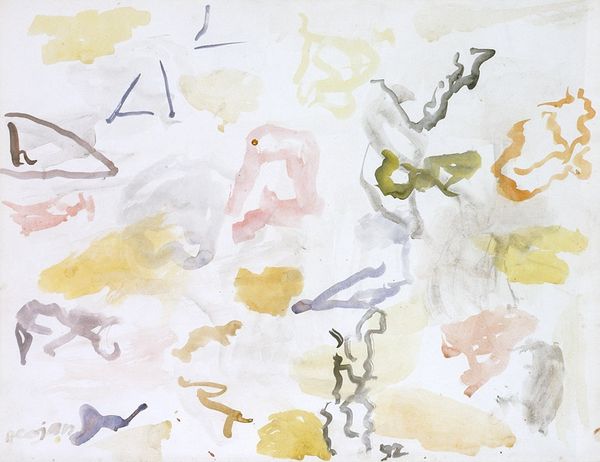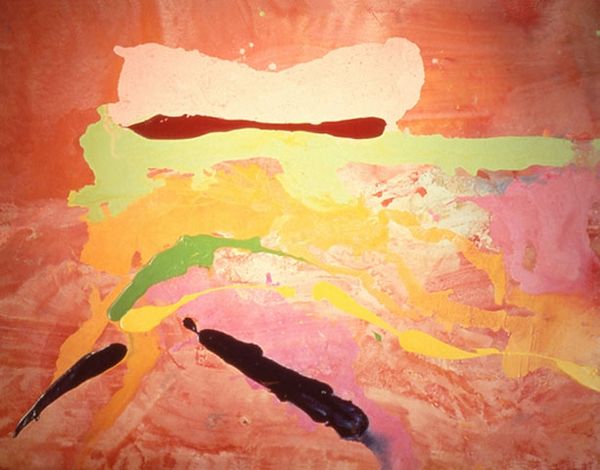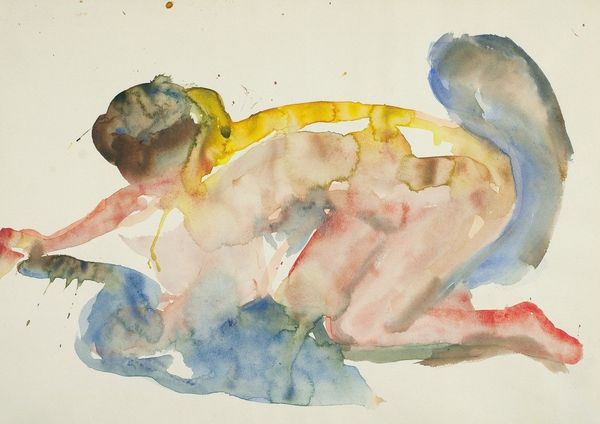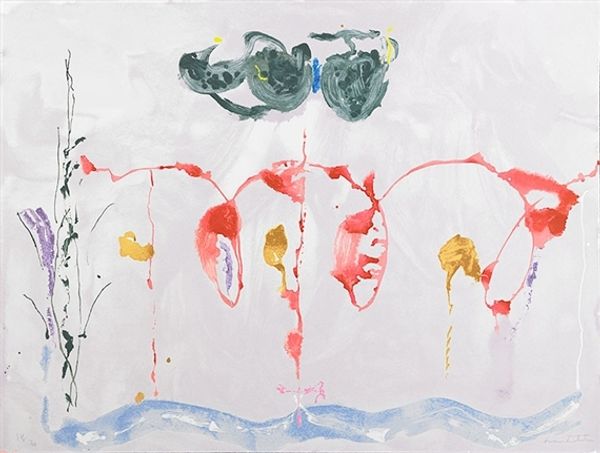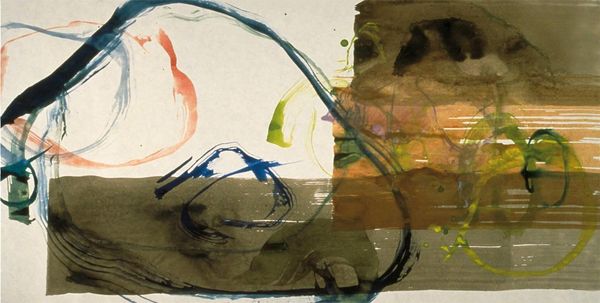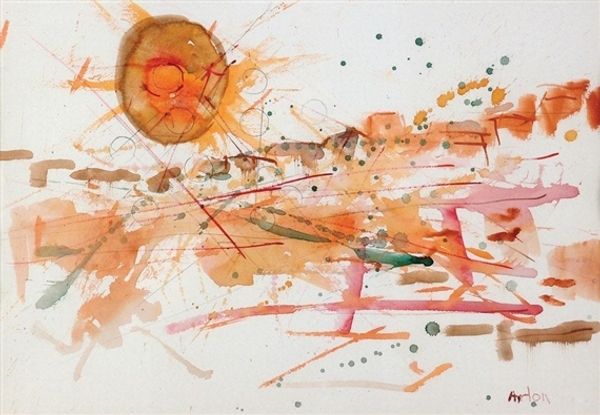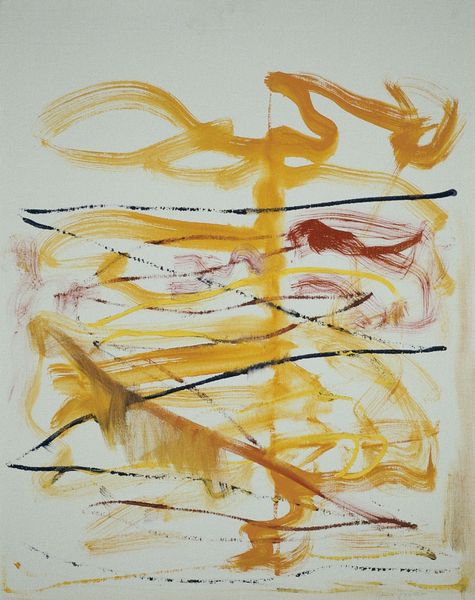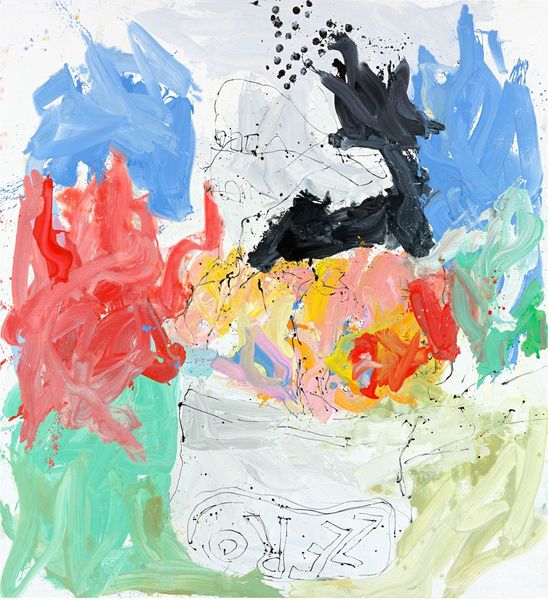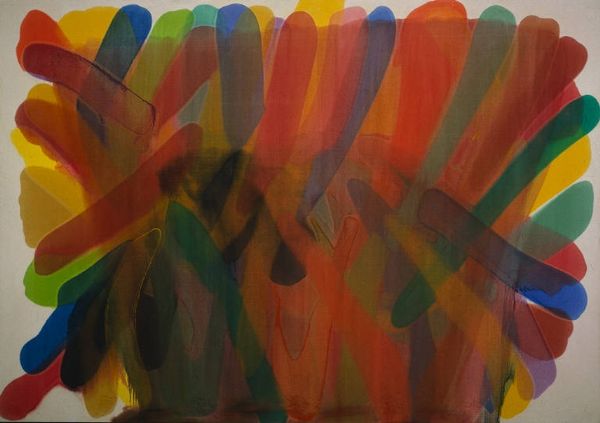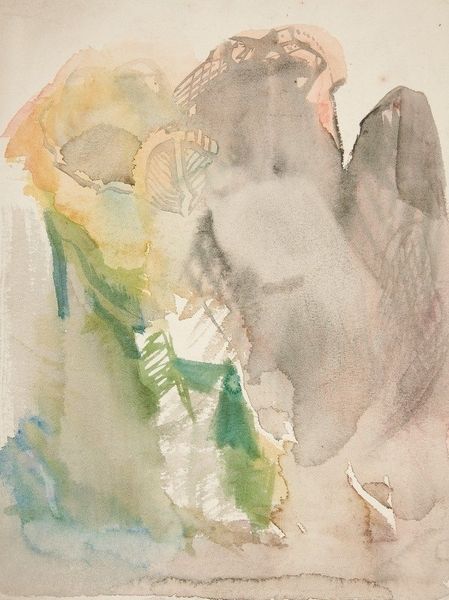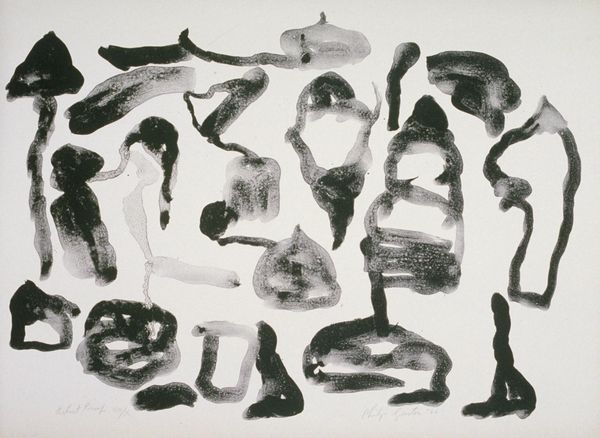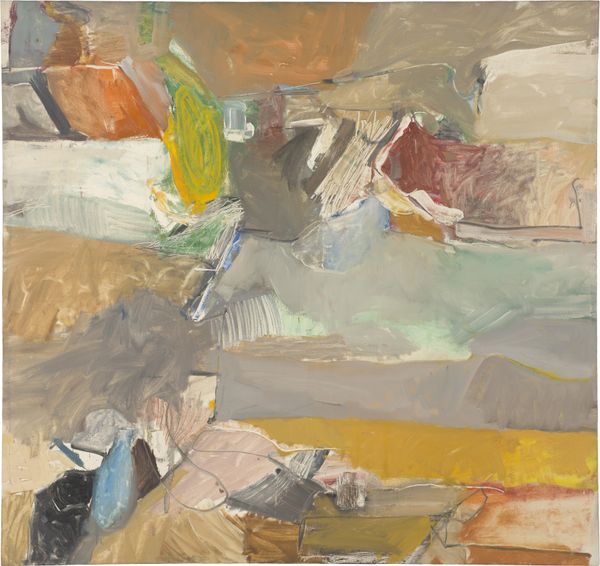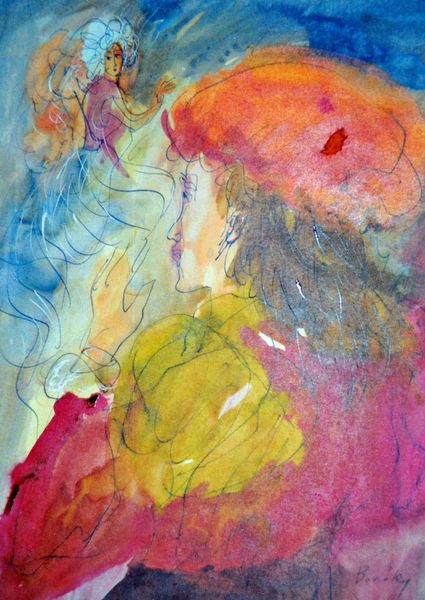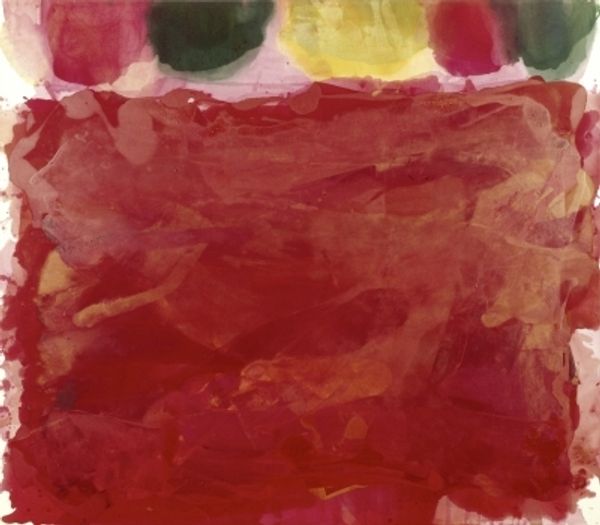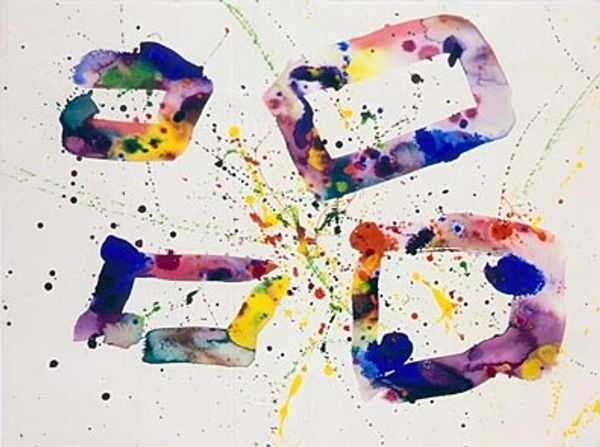
painting, watercolor
#
abstract-expressionism
#
organic
#
painting
#
watercolor
#
abstraction
#
watercolor
Copyright: Aurel Cojan,Fair Use
Editor: Here we have "Flower," a watercolor painting by Aurel Cojan. The brushstrokes are quite loose and suggestive, creating an abstract composition that, even though called 'flower' looks more like an impression of organic matter. What do you see in this piece that might reveal more about its context? Curator: Well, it strikes me as an interesting interplay between spontaneity and control, something we saw developing mid-century. Abstract Expressionism, as the tags suggest, became quite a powerful statement in its institutional framing as “American” art, and its organic quality here is suggestive. It’s interesting how the “natural” world becomes a vehicle for ideological expression in art. Editor: Ideological expression? So even a simple watercolor of, presumably, flowers, can have political undertones? Curator: Absolutely. Think about the historical moment, perhaps mid-20th century - consider how the embrace of abstraction was sometimes viewed as a rejection of totalitarian regimes which favored representational art. By exploring the ambiguous forms of the natural world, as Cojan does here, perhaps they’re subtly aligning themselves with certain freedoms – freedom of expression, of course, but perhaps even broader socio-political liberties. Editor: That's a perspective I hadn't considered! So, rather than just a pretty picture, it’s possibly a subtle declaration. I guess thinking about Abstract Expressionism's institutional role during the Cold War explains how that is even possible. Curator: Exactly. The context truly shapes how we interpret what we're seeing - what was even *allowed* to be seen. Editor: I'll never look at a watercolor the same way again. Thank you for offering that additional, fascinating, context. Curator: It's all about perspective. Thanks for sharing yours!
Comments
No comments
Be the first to comment and join the conversation on the ultimate creative platform.
